In February 2021, the Valor 2 Virtue team visited the Local Ocean Conservation center in Watamu, Kenya. The organization was founded in 1997 and was originally called the Watamu Turtle Watch. The organization started with one goal, to protect female sea turtles that came to Watamu beach to nest. Nearly 25 years on, the organization has grown, now encompassing so much more than just nesting sea turtles.
We were given a tour around the organizations facilities, starting in their education room. The room itself is artistically put together with paintings and displays that make you feel like you under the sea. A friendly tour guide is at the ready to take you round each section of the center. The center is very well put together, with friendly and easy to understand displays and funky art pieces made from old plastic and flip flops, there is much to learn and see, and is probably why we ended up walking round a second time!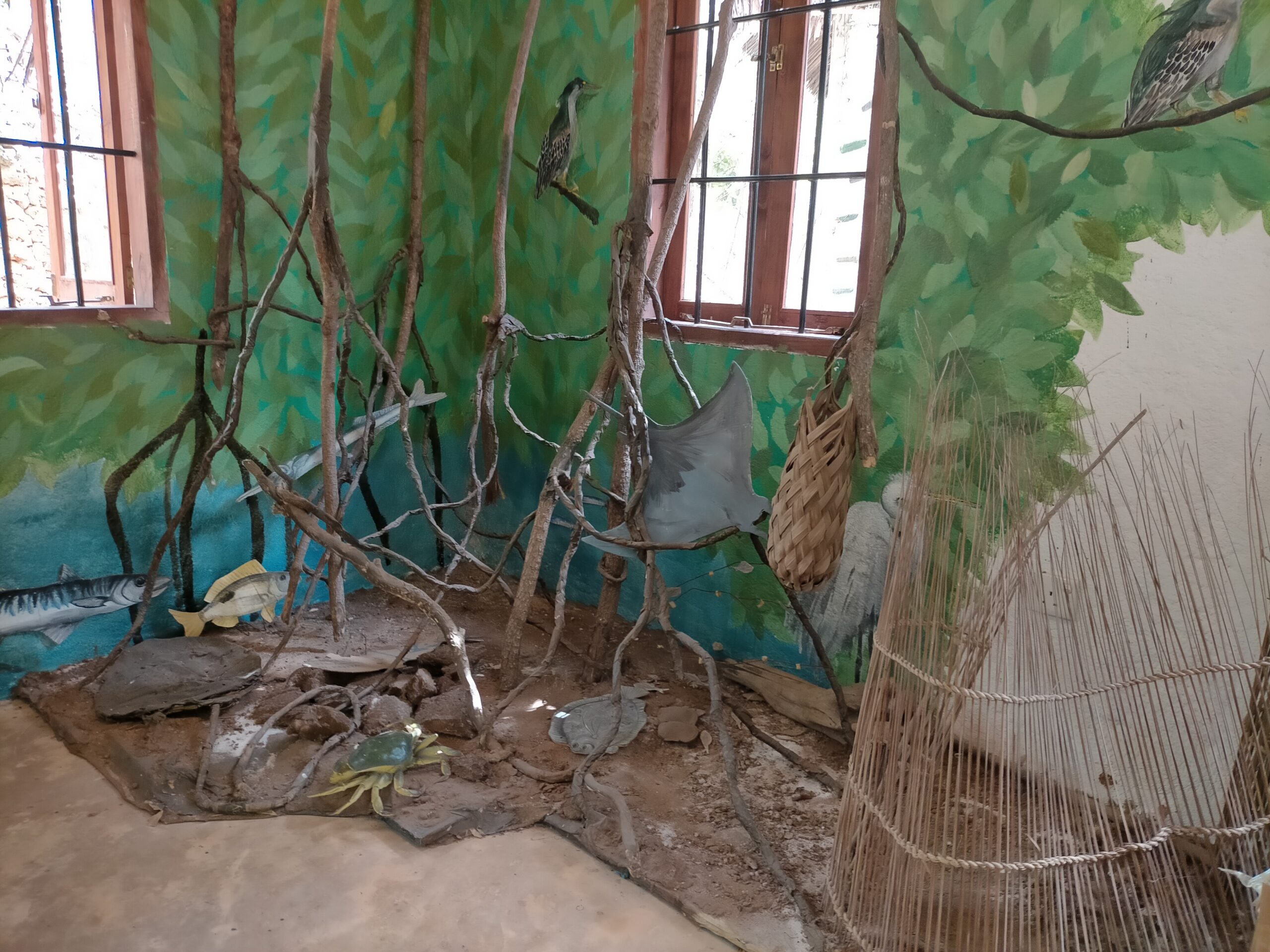
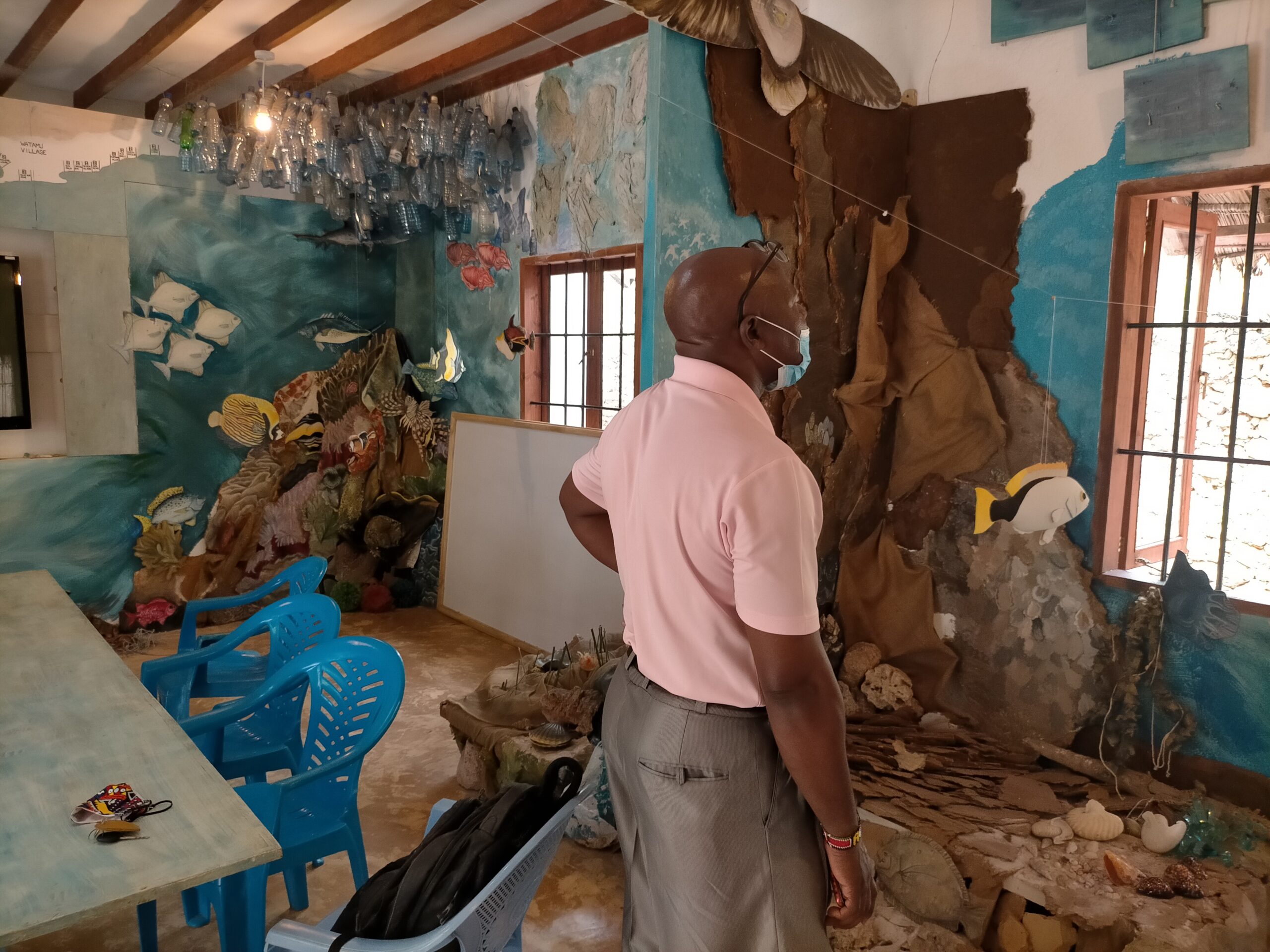
For Valor 2 Virtue it was important to visit Local Ocean Conservation, the turtle experts along the coast, because who best to learn from but the guys who have been on the ground protecting sea turtles in Kenya since the late 90’s.
From learning fun facts about marine life, for example, did you know that sand is actually mostly parrot fish poop? Or that female sea turtles will always return to the beach they were born on to lay their eggs, this could be over 30 years later and after 1000’s of kilometers travelled. To more serious lessons, like the severe impact humans are having on the oceans. From the damage plastic is having on marine life, the importance of mangrove forests and the rapid loss of these habitats, all the way through to overfishing and bycatch.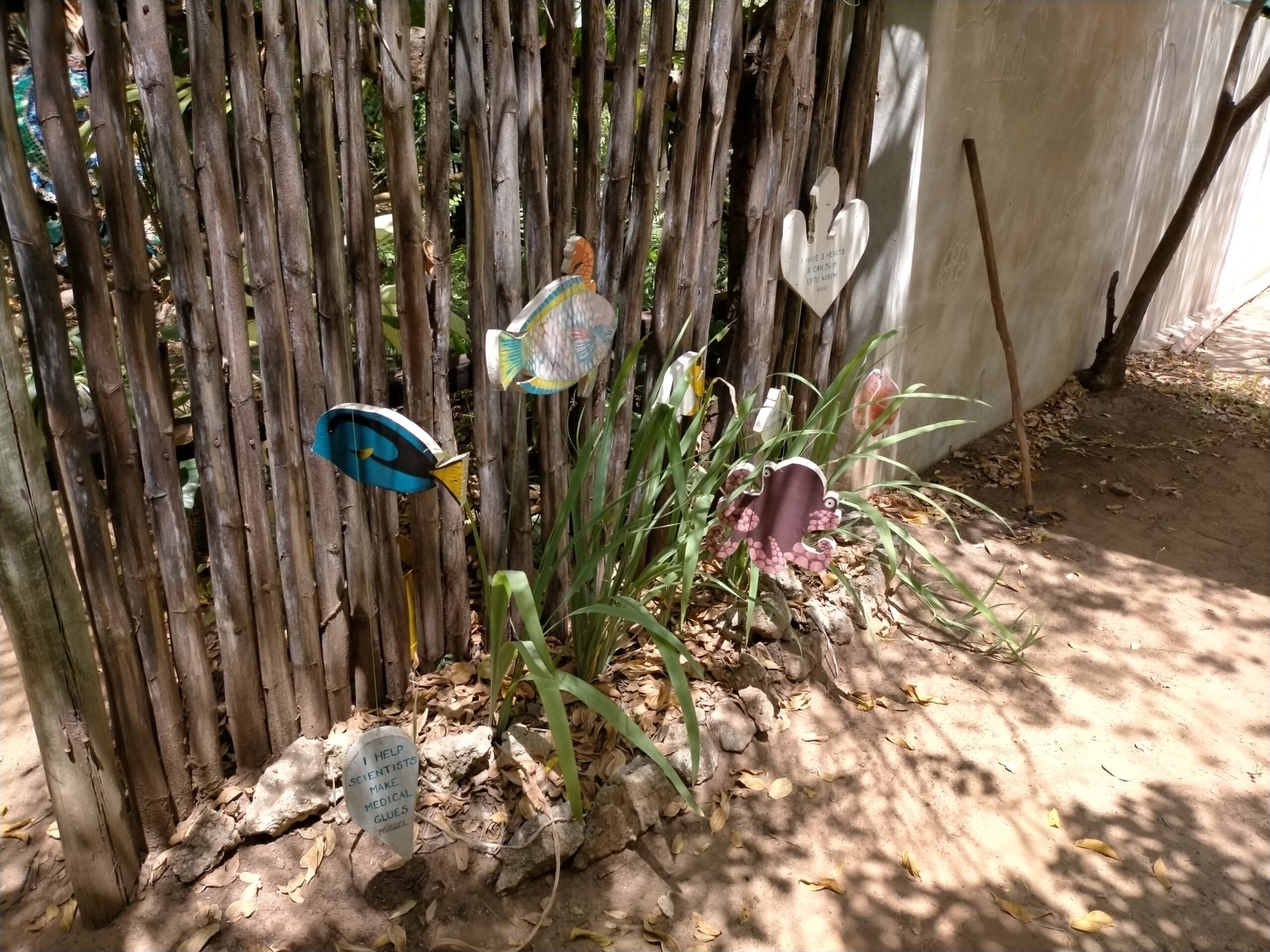
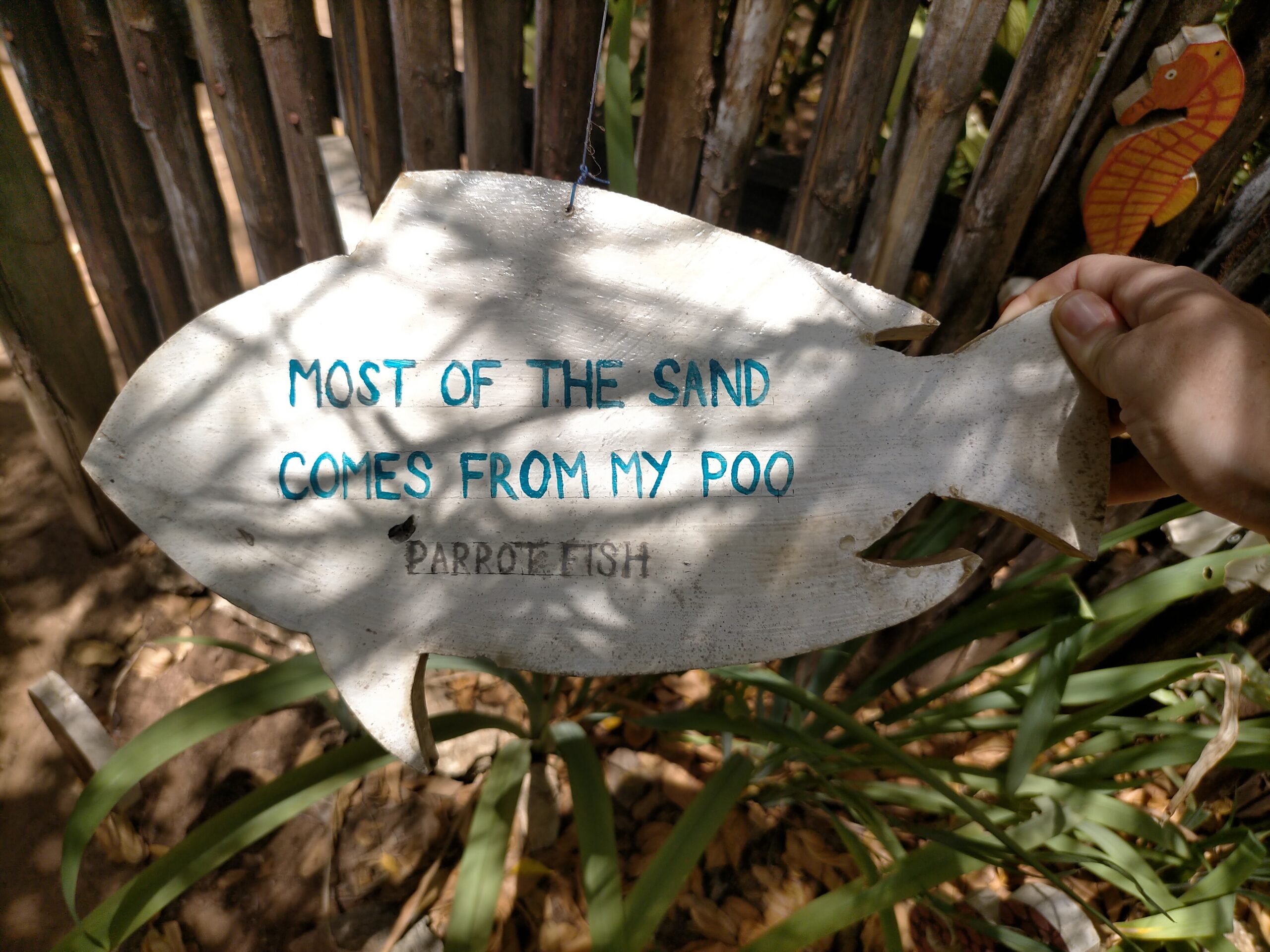
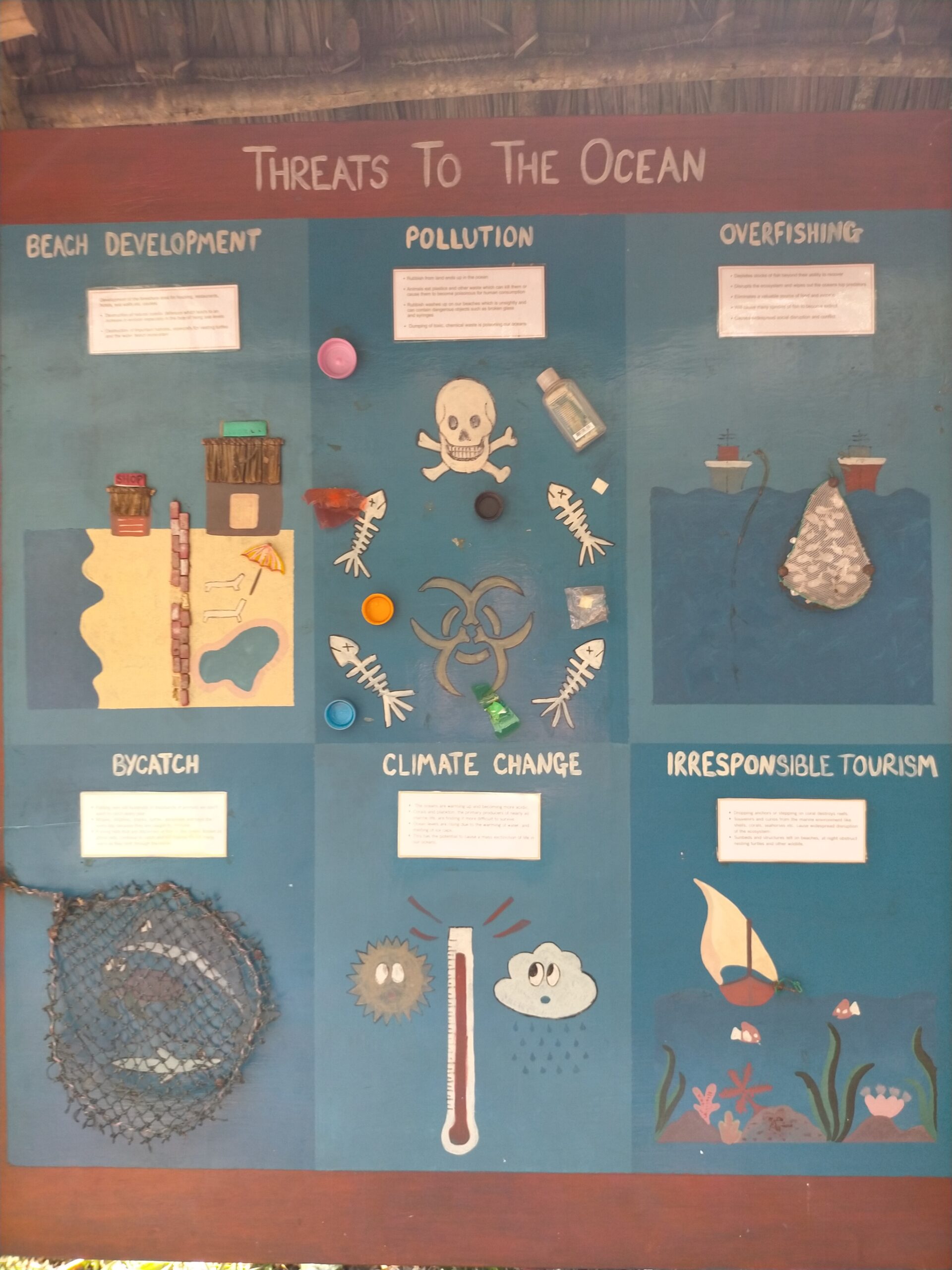
To combat these losses, the organization have several projects, including education and outreach programmes, a mangrove nursery and restoration programme all the way through to anti-poaching patrols!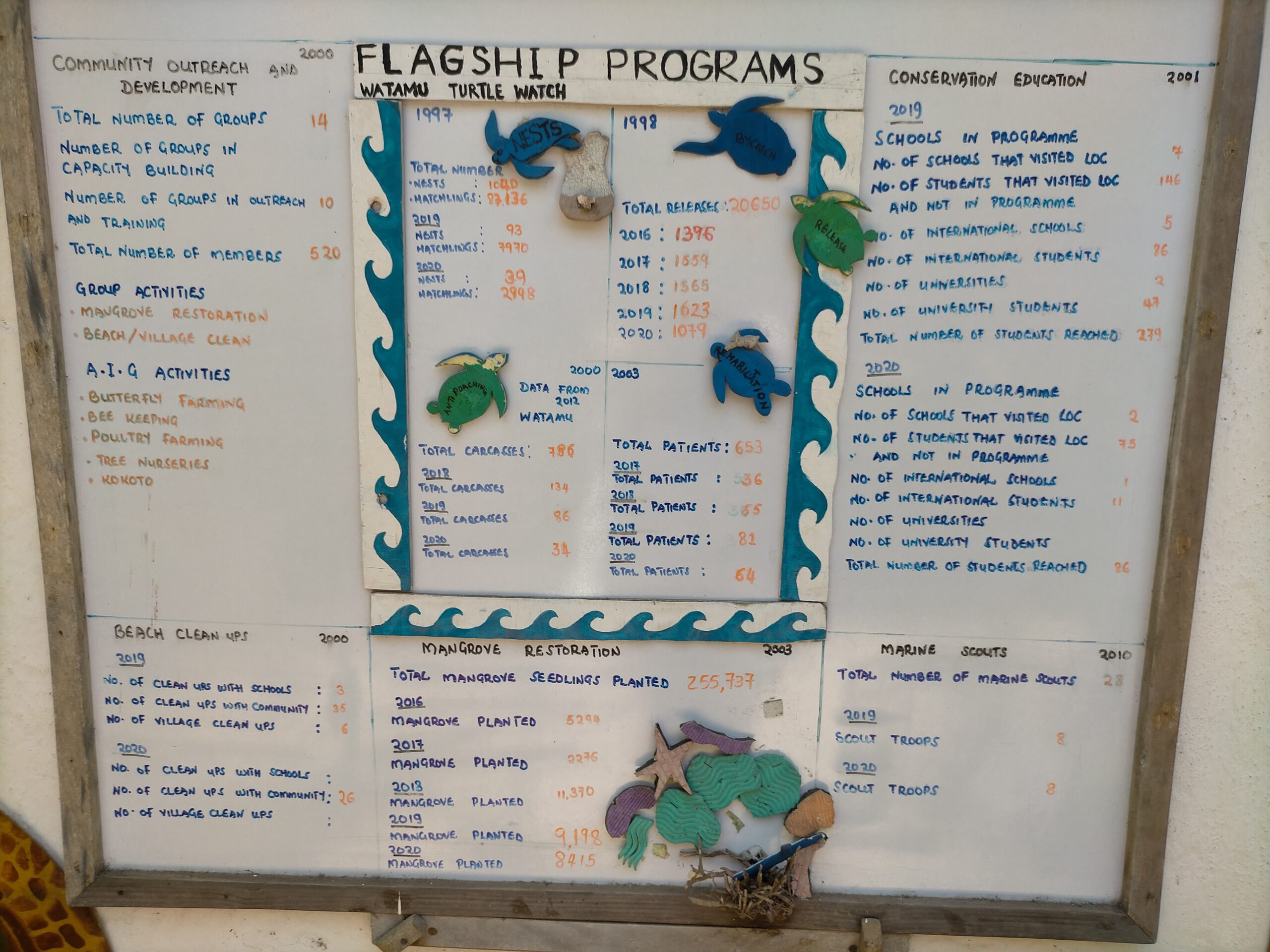
As you enter their garden, home to art pieces made from trash and indigenous tree saplings, you are taken to a hut and hit by the sight of sea turtle shells, skeletons and skulls. This pile has been collected over the years from anti-poaching patrols and left for all to witness, a stark wake up call for all of some of the threats these beautiful animals face.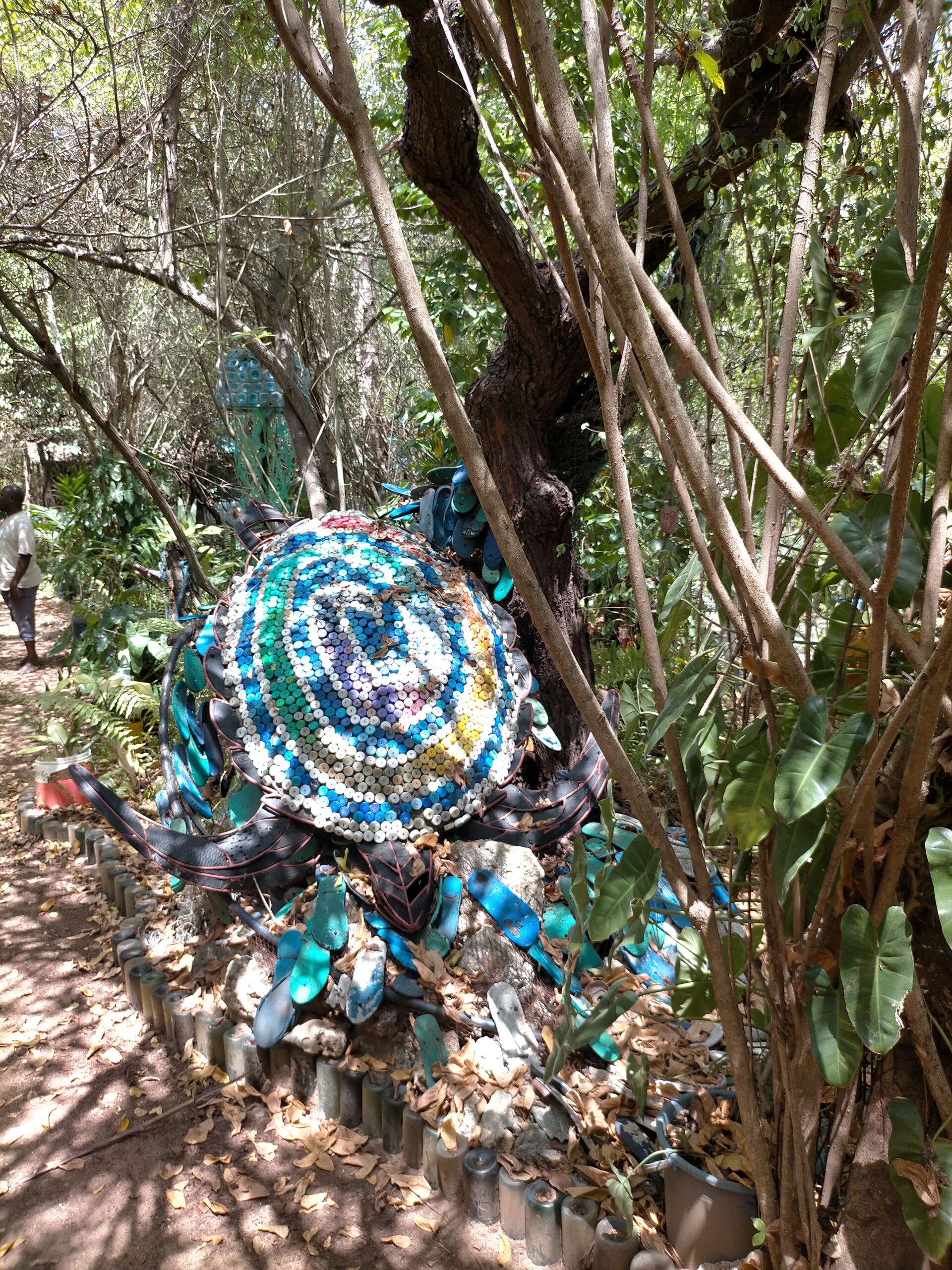
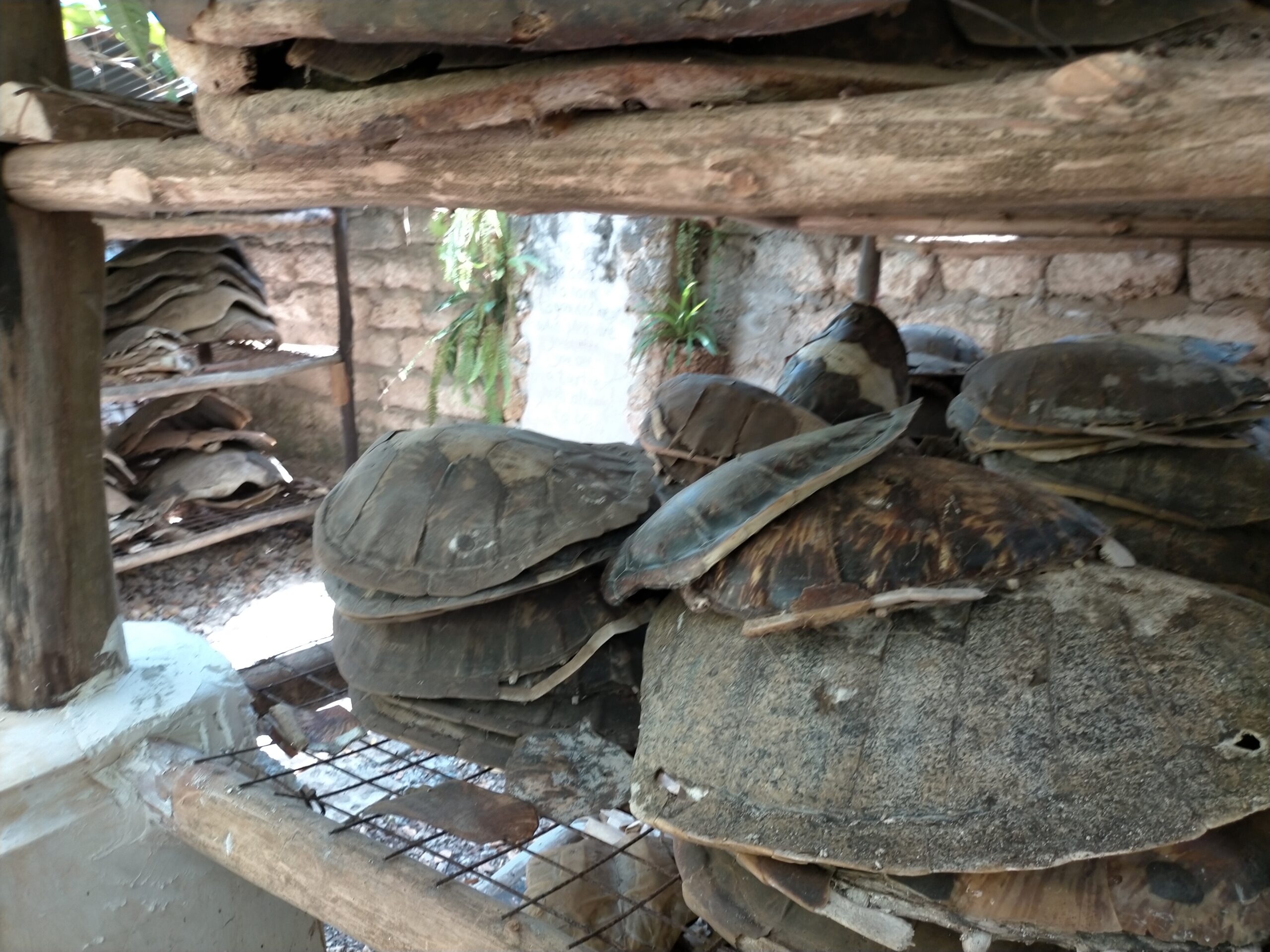
The organization has many proactive programmes in hope to reduce these threats overtime but this simply is not enough and so also have a rehabilitation center for sea turtles that fall victim to damaging human activities. On our visit we were lucky to witness the vet at work as he treated a young female sea turtle. The female had been at the center a few months being treated and most likely had a few more months ahead before release. We watched with fascination as the vet went about his work, collecting blood, cleaning the turtle’s wounds and administering medicines. The turtle under treatment had a large hole on top of her shell, likely damage from a fishing based activities and would take a long time to heal. We were impressed by the commitment and passion the team showed for these animals, the guide goes on to explain that this is actually not that long, with the longest in rehab being a female for 6 years, she explained that although lengthy the turtle was finally releasable and so was happy to report the 6 years was worthwhile and a success!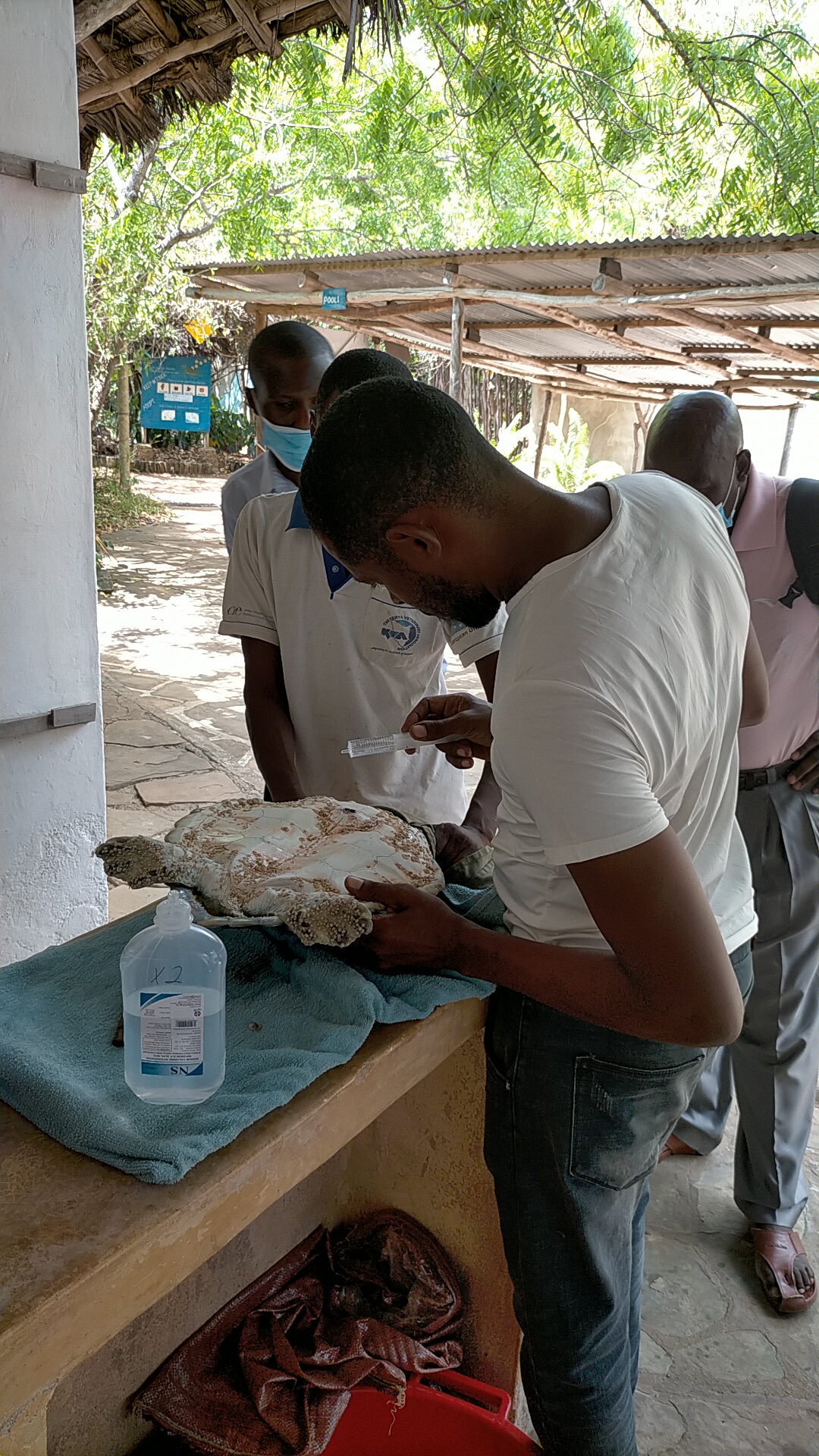
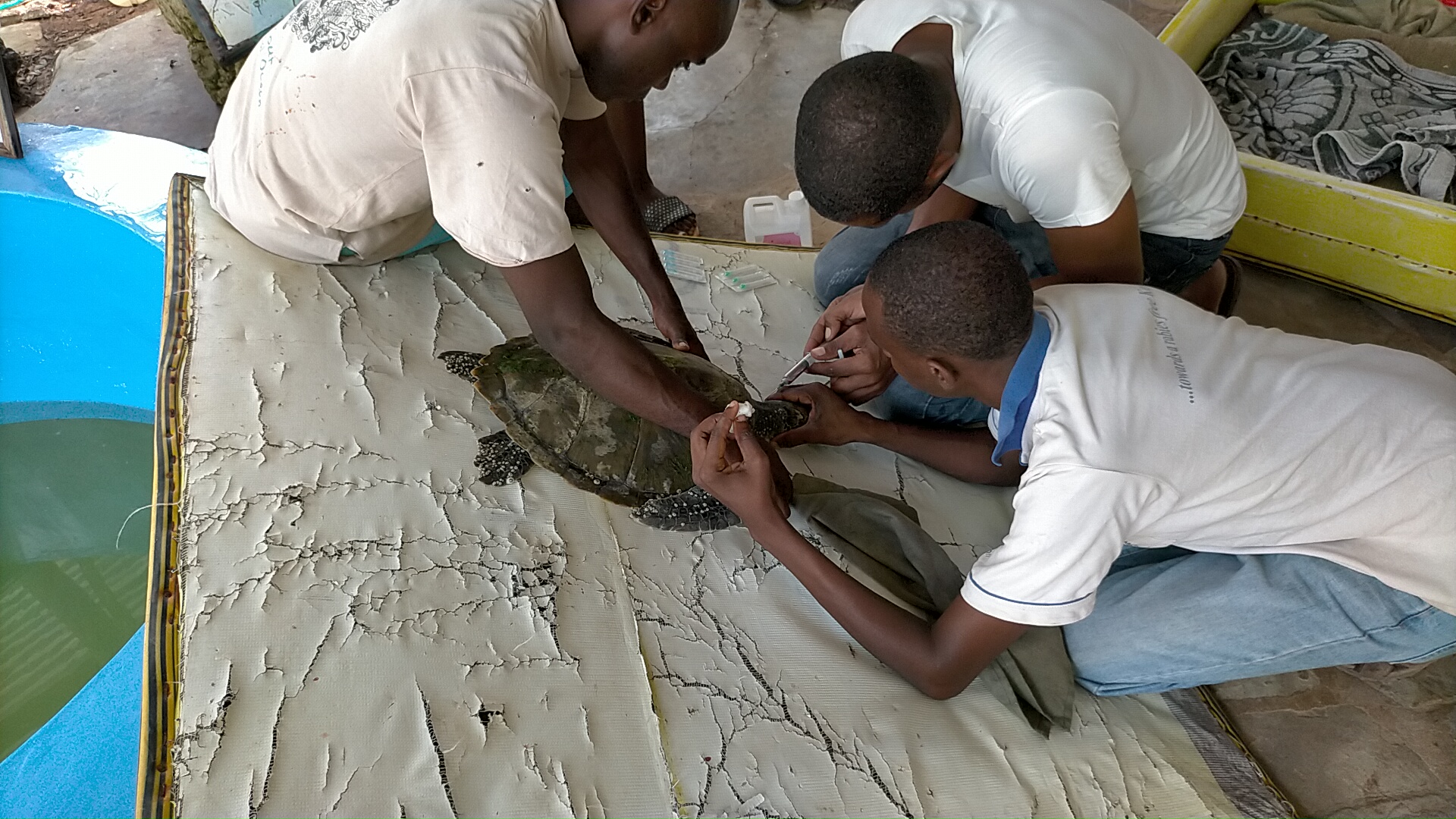
As we prepare to leave we thank the team and take some last snaps of the center’s information, inspired by what we had learnt. We take a moment to share contact details with their team, eager to come back for further training in sea turtle protection methods. Local Ocean Conservation also train many turtle based community groups along the Kenyan coast in nest relocation methods, a programme we are keen to explore, support and potentially implement at our place of work. As we drive back, we discuss what we learnt, one of our team expresses that sheer shock in the damage just a straw can have on marine life, vowing to spread the message and to refuse plastic straws going forward.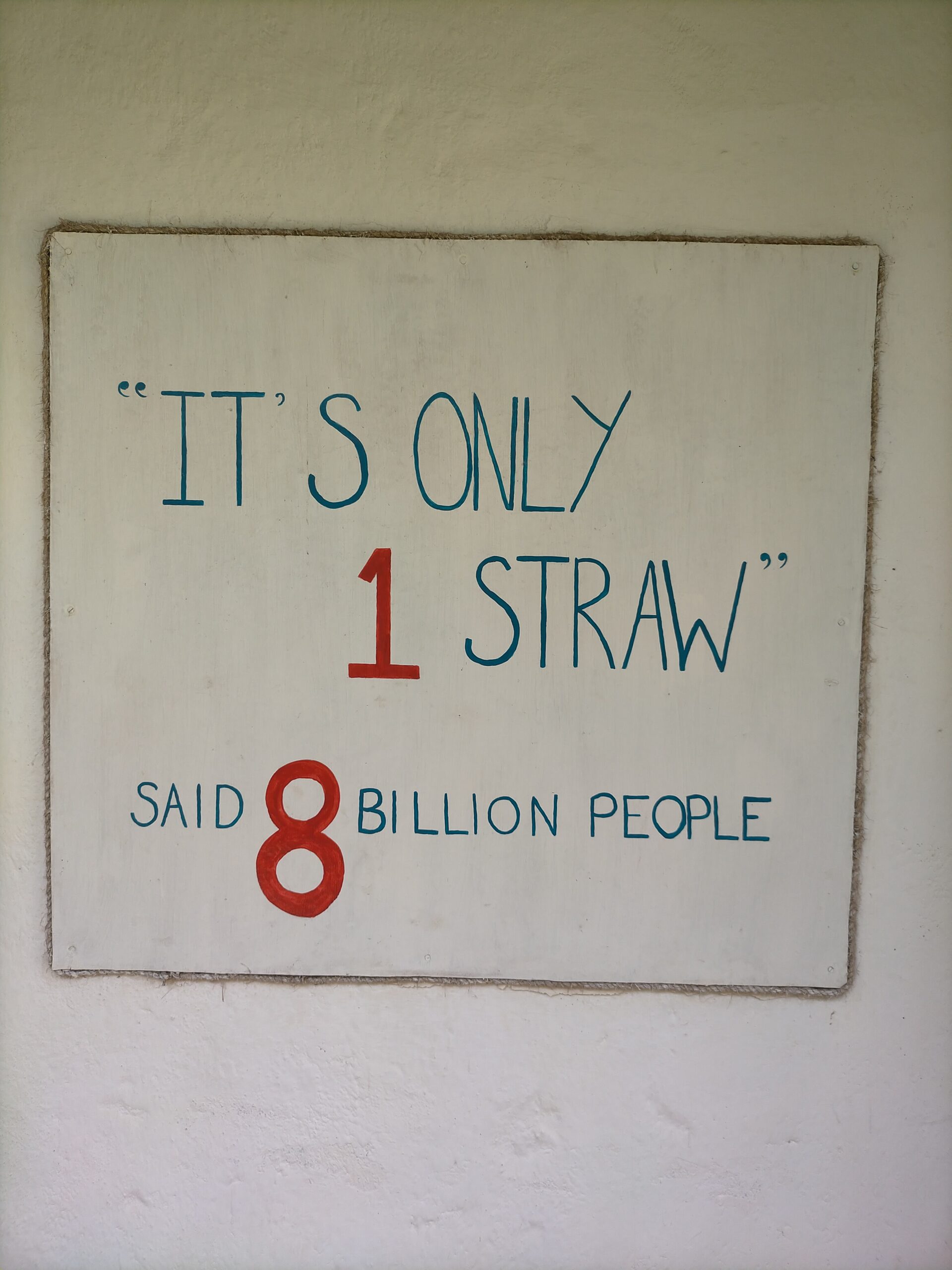
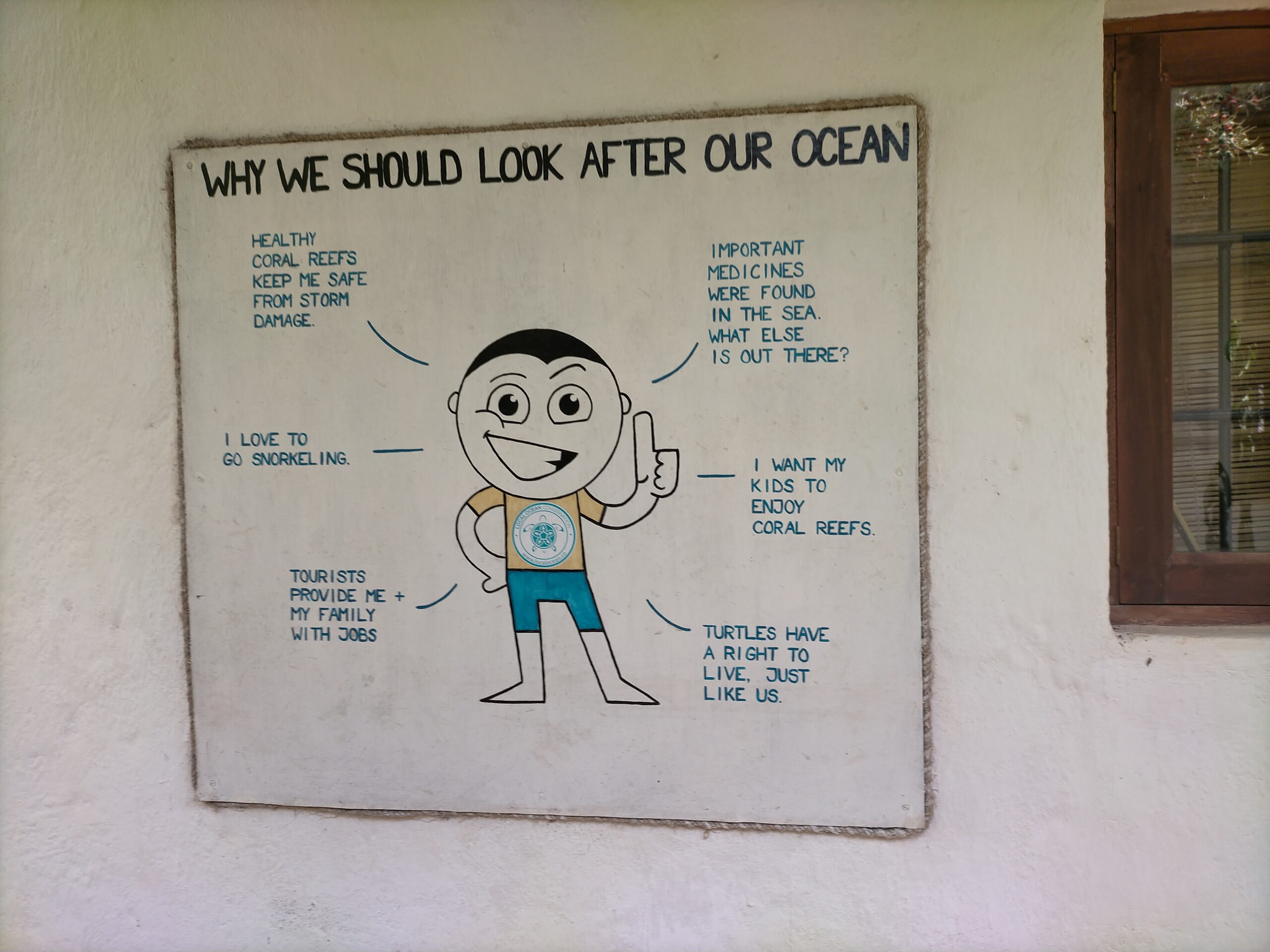
There was a lot learnt from our visit and we hope to work with Local Ocean Conservation in the future, utilizing their expertise and training opportunities. If you visit Watamu, ensure that the Local Ocean Conservation is on your list of places to visit; https://localocean.co/.
